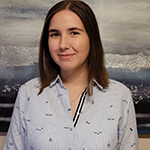Implementing a real-time PCR-based method for sterility release testing of ATMPs
22 February 2023
Shares
- Like
- Digg
- Del
- Tumblr
- VKontakte
- Buffer
- Love This
- Odnoklassniki
- Meneame
- Blogger
- Amazon
- Yahoo Mail
- Gmail
- AOL
- Newsvine
- HackerNews
- Evernote
- MySpace
- Mail.ru
- Viadeo
- Line
- Comments
- Yummly
- SMS
- Viber
- Telegram
- Subscribe
- Skype
- Facebook Messenger
- Kakao
- LiveJournal
- Yammer
- Edgar
- Fintel
- Mix
- Instapaper
- Copy Link
Dr Alexandra Mueller-Scholz, Sartorius, and Yasmin Heynen, Molecular Development at Labor LS, discuss rapid sterility testing for ATMPs using a real-time PCR-based method.
About this webinar
Currently established rapid methods for sterility testing of advanced therapy medicinal products (ATMPs) are mostly based on growth-based processes or the detection of metabolic activities. However, the requirements for real-time measurement and the testing of cell-containing products cannot be met with most of these methods.
In contrast, the real-time polymerase chain reaction (PCR) methodology offers a sterility test on cellular products with determination of the results on the same day. The required detection limit of < 100 CFU according to USP <1071> can be met.
A particular challenge here lies in the implementation of the molecular biological method in a multi-room Grade A cleanroom environment. Practical implementation of the technique, considering the possible risk factors will be presented.
Key takeaways
- Understand how real-time PCR can be implemented as sterility testing method for ATMPs
- Discover how Yasmin Heynen designed the setup and risk analysis for the implementation of the rapid sterility testing in a cleanroom class A
- Learn about the validation strategy at Sartorius including the authorities’ requirements for rapid microbiological methods
- Ask the experts questions about this process and benefit from their knowledge and guidance during the live event.
Our speakers


Dr. Alexandra Mueller-Scholz, Lead PCR & Microbiology Application Development Team, Sartorius
Alexandra holds a Masters degree in Biotechnology from the Technical University of Braunschweig (Germany, 2010) and a PhD in Live Science from the University of Hannover (Germany, 2014). She did her PhD in cooperation with Sartorius Stedim Biotech where she started working as scientist in the department of R&D Microbiology in February 2014.


Yasmin Heynen, Molecular Development, Labor LS





